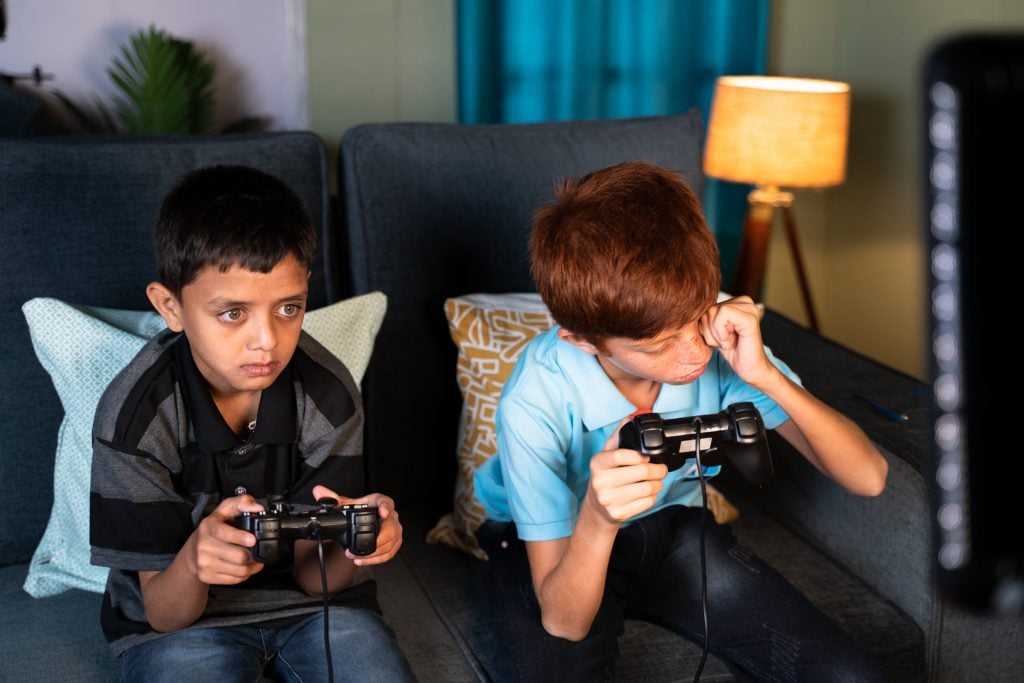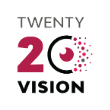
Kids grow, learn and develop quickly during their formative years, and so do their eyes. From one year to the next, your child’s vision may have changed. Even the slightest changes can go undetected and develop into a bigger issue down the line. It’s also important to note that your child might not even realise if something is wrong with their vision.
Your children’s eyesight plays an important role in how they learn and perceive the world. That’s why your child’s annual comprehensive eye test is essential for taking care of their well-being and development.
Your Child’s Visual Development
Your child’s vision is a complicated interplay between the brain, eyes and the extensive network of nerves that connect them. This visual system is underdeveloped at birth and continues to grow throughout the infant’s early years. Healthy eyes and vision are essential parts of achieving developmental milestones in the early years and academic school preparedness and academic success as they grow.
Schooling, Studying, Sports – Your Child’s Daily Visual Tasks
Reading, writing, blackboard work and computer use are just a few of the daily visual tasks kids are expected to perform at school. In the classroom and during play, your child’s eyes are continuously in use. When their eyesight is impaired, their education and involvement in sports are jeopardised.
Even in the event of impairment, with annual children’s eye tests, any issues can be detected and corrected with a wide variety of children’s glasses, frames and varied functionality. Your child can participate and focus on their studies without the additional stress of strained vision.

Visual Skills Go Beyond Just Having Clear Vision
Throughout their schooling, your child will face increasing demand on their vision. The amount of time students spend reading and studying has increased dramatically, while the font size in textbooks has decreased.
To study effectively and achieve their full potential, your children’s eyesight must be precise. By visiting your local children’s eye doctor, you’ll be able to keep track of your basic visual skills beyond just having clear 20/20 vision.
- Visual Acuity: The ability to see clearly at all distances.
- Eye Focusing: Quickly adapting as the distance from objects change (e.g. from blackboard to notebook).
- Eye-Tracking: Keeping eyes focused on a moving target (useful in sports).
- Eye Teaming: The ability to coordinate the use of both eyes together (i.e. in reading along on a printed page).
- Hand-Eye Coordination: The ability to take visual information in and direct the hand movements accordingly.
- Visual Perception: The ability to arrange pictures on a printed page into letters, words and concepts. Capacity to comprehend and recall what is read.
All of these play an essential part in your child’s capacity for recognition, comprehension and retention in the classroom. By investing in their eyesight, you ensure they achieve their best and get the most out of their time on the sports field and playground.
After School – Screen Time
At home, after a long day of learning, playing, studying and developing, it’s likely that your child prefers to unwind in front of the television. The youth of the 21st century have grown up with devices and screens, as screens play an important part in their schooling. They’re always on their cellphones or spending hours gaming. But do you realise that this increased screen time is a phenomenon we are still adapting to?
What is the effect on their eyes? Your children’s eye specialist will tell you that it’s all adding up. According to a study by Scrivens Opticians, the number of teens aged 13 to 16 who use glasses has almost doubled in less than a decade.
Harmful Blue Light From Excessive Screen Time
Blue light damages the retina. There is a range of light wavelengths that most digital devices emit that damage our eyes. The sun is the biggest source of this light. The difference between now and a decade ago is that our eyes are frequently exposed to higher amounts of light indoors. The negative impacts don’t stop with the retina and vision systems. Research shows that excessive screen time can affect your child’s sleep patterns and overall brain development.
Increased Risks Of Myopia (Short Sightedness) In Youth
The increased visual stimulation caused by devices and screens has likely induced eye strain, blurred vision and shortsightedness.

Screen time has been linked to an increased risk of myopia in young people. According to a recent study published in The Lancet Digital Health, High levels of exposure can increase the risk of shortsightedness by up to 80%. Myopia is a condition that causes the eyeball to grow abnormally fast, becoming elongated at the back, causing near-sightedness and extremely blurred vision.
Accommodative Support Lenses
Children’s spectacles that feature accommodative support lenses can be prescribed to compensate for the lack of vision adjustment when focusing from distant objects to near. This can decrease short-sightedness progression, protecting your child from the life-altering visual impairment that can occur in short-sighted-related disorders later in life. There is a higher tendency of short-sightedness to deteriorate rapidly among children. Accommodative support lenses decreases the deterioration significantly.
Blue Light Protection
A recent innovation in blue light protection is blue control optical lenses. These anti-reflective lenses reduce glare and protect your child’s eyes from harmful blue light, allowing for a clearer and more relaxed vision, placing less strain on the eyes. These lenses provide three times the level of protection of ordinary prescription lenses.
Book Your Child’s Annual Eye Test Today
If you’re concerned about the long-term effects caused by excessive screen time or worried about how their eyesight may be affecting their academic performance, it might be time to visit your local children’s optometrists.
We Are Here To Help
The Twenty 20 Vision team has 32 years of professional experience. Before making a prescription, we consider all aspects of your child’s family history, health, schooling, studying and sporting activities to determine the best eye care solution.
We have a wide variety of children’s glasses frames, featuring single vision lenses, multifocal or accommodative support lenses, and even add-ons such as blue-blocking or blue light glasses. Our lenses vary from standard to premium eyeglass lenses with absolute minimal distortion. Book your annual children’s eye test today.
